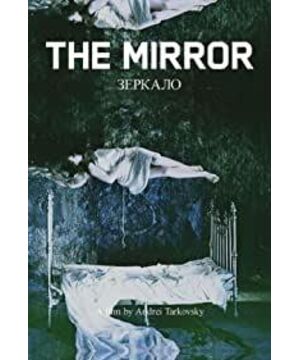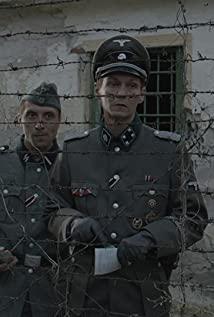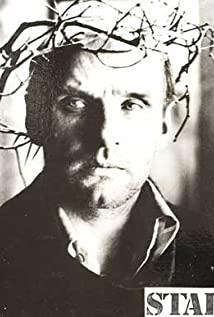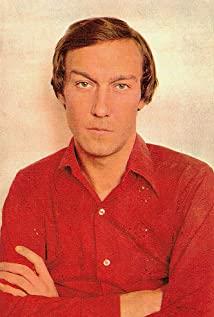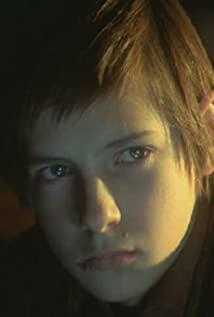From the viewing experience point of view, it is no exaggeration to say that Andrei Tarkovsky's "Mirror" is one of the most incomprehensible films in film history.
It lacks narrative coherence and, if one does not look carefully, even lacks formal structure, while the slowness of photography and the "poeticization" of the presented content are full of narration of memories and poetry, and extremely natural The details of his performance and life make almost every shot full of "metaphorical symbols".
However, from the director's film essay "Carving Time", he emphasized, " In this film, for the first time, I decided to use film language to say the most important and precious things to me, and I calmly said Chen, don't make any fiction. " This also deeply influenced his later film creation philosophy.
Do not make any fiction! This means that images that make us feel disconnected and incomprehensible are completely real to the director. He is using the language of film to describe himself and to carve the time in memory. Even before the actors perform, they have absolutely no idea what the content of the current performance has to do with the next one. The director asks them to look only for the status of what is being performed at the moment.
The film was originally named "Confessions", but the director renamed it "The Mirror" because "What human beings need is not space, but only a mirror to see themselves " in "Flying to Space" that the director submitted to the studio at the same time . The director hopes that the memory that originally belonged to him can become a mirror for the audience—retracing his own memories and knowing himself through the mirror of "memory".
At the same time, the director does not want the audience to think that he is pretending to be lofty, but as the film says, "The book is not a check but a manifesto, and the poet is to awaken the soul, not to cultivate admirers. " The hypocritical memories deceive the audience, not to make the audience worship him, but to awaken the audience's memory by sharing their own memories.
Thus, The Mirror is in a sense a stream-of-consciousness literature (literary work that does not tell stories according to normal chronological order and writing structure), the best example of which is Proust's long literature Works "Reminiscence of the Years Like Water", and Faulkner's "The Sound and the Fury".
"Mirror" cannot be simply classified in terms of realism, formalism, etc. Even a "poetry film" in the positive sense is nothing but an inexplicable description, and it is easily misunderstood as a myth . This is like Nietzsche's contradictory interpretation of poetry - life without poetry to beautify is unbearable, and at the same time it is a beautiful lie, the self-deception of the poet.
"Mirror" is such a paradox. It is easy for the audience to understand as a poem, but the director regards it as the reality of "doing nothing fictional" in life without it. Therefore, in my opinion, since this is an autobiographical film belonging to the director, it might as well be classified as "author's film", so as to avoid unnecessary debates about the form and content of the film.
The film language of "Mirror" seems to be incomprehensible, but the content is actually extremely simple - a video-like memory splicing of a past life. It's just that after going through more than 20 editing schemes, the director spliced it together extremely brilliantly, even flawlessly.
The film has only a small number of more than 200 shots, and the short story spliced by the shots is less than 20 segments. Each segment of the edited content is not coherent on the timeline, but it always makes a difference in one segment for the next segment. Padding so that it joins up on the clip. It also includes memories, dreams and documentaries embedded in a piece of content.
In terms of the overall structure, the doctor's stuttering treatment of the male protagonist at the beginning of the film, that is, the use of "aphasia is cured and the ability to express" is used to elicit memories, and then the memories are about his family relationship with his mother, wife and children, as well as his mother and colleagues. The relationship between him and the instructor when he was young, etc., all point to the "communication barrier" between people, and conclude that words cannot accurately describe the main theme of the film.
At the end of the movie, the mother, the wife, and the male protagonist in childhood, the three age groups are in the same grass, and they seem to be gathered together in memory, but their many intersections during this period have never reached an emotional commonality.
This is a tragedy that each of us is bound to encounter in life, and Tarkovsky expressed his understanding and sympathy for human beings as an artist through the portrayal of the film.
In terms of segmental structure, for example, the passage where the male protagonist’s mother is waiting for his father’s return, and the lost doctor’s thoughts on nature correspond to the sudden fire behind and the three violent winds that hit the forest in the movie. Nature is static, but it always overrides human cognition and creates countless uncertainties for us to face. Stillness corresponds to endless change.
The child (childhood male protagonist) woke up from a dream and called him "Dad", and the camera quickly switched to after becoming a father, he washed his wife's hair - because the same actor played the wife and mother, on the one hand, expressing the man himself In terms of love needs, there is a "similar" desire for mothers. On the one hand, the same actor has completed the memory association switching very well.
Afterwards, his relationship with his mother about the death of her colleague (which sets the stage for the next story about his mother's work in a printing house), and his wife about family relations (which sets the stage for his communication with his children and leads to his youthful love story) dialogue.
These two paragraphs mainly talk about the above-mentioned problems between people, even if there is work as a communication medium, as well as family and love blessings, it is difficult to achieve emotional commonality. The story about the printing factory in the first paragraph shows the powerlessness of communication between the heroine and her colleagues, and the second paragraph is between her husband and her husband.
The director was extremely ruthless in filming to make the male protagonist always be a character outside the camera, fully showing his wife's side, and at the same time using his wife to look at herself in the mirror to show her powerlessness in communication. It has to be said that this is a master-level photography skill.
In this plot, it not only depicts the mental powerlessness of women as mothers in their family roles due to their tolerance for their children and support for their husband's career, but also depicts the indifference of men in family relations, and their relationship with a certain A biased assertion that age should have a corresponding relationship in career.
Both of them are "middle class", with culture and status, but their understanding of human nature is still as superficial as the general public.
The above are relatively outstanding examples that can generalize the whole article and show the perfection of film editing. The references to the Spaniards and the documentaries during World War II also point to the loneliness of strangers (the Spaniards left because of the war in their hometown, and even if the war is over, they will not be able to return), and the greatness of human nature highlighted by the war (instructors use Flesh to cover the grenade accidentally pulled by the student).
This movie originally belonged to Tarkovsky's personal memory, but it sublimated the compassion for the lonely and the praise of the great humanity. This is also the key to "Mirror" worthy of being called "art", which expresses the rich humanity of the director as an artist.
In comparison, Bi Gan's "Roadside Picnic", Wong Kar-wai's "Breakthrough", Lou Ye's "Suzhou River", and the innovative work of such films, Luis Buñuel's "An Andalusian Dog" The topics shown are extremely limited.
Not only does "Mirror" handle memories very well in editing, but the director's father's poems and Bach's music all play a role in linking the memories of different stories, and even strengthen the film's connotation.
These processes are just like when we are recollecting and narrating, when we come to a certain point, because of some ideas at that time, or life-related music, painting or, toys and games, etc., and the related people and stories are extended. Come out, and finally go back to where you left off at the beginning to continue the story. And the time series is naturally fragmented.
Among Chinese literary works, Liu Zhenyun's "One Sentence Worth 10,000 Sentences" has almost no gorgeous language in the whole piece, and only relying on this way of storytelling has completed a classic literary work with great personality and connotation.
Tarkovsky emphasized in "Sculpting Time", " I'm not talking about myself in 'Mirror'... I'm talking about my feelings and relationships with the people closest to me, and my inability to handle them A sense of responsibility and eternal guilt ." Therefore, when we see at the end of the film and the male protagonist lying on the hospital bed says "I am guilty", it is the director who expresses himself through the film.
It is worth mentioning that, in the opinion of some people, this film originally used by the director to narrate personal memories ended up showing the story of a mother. And when the scene of the male protagonist lying on the hospital bed releasing the sparrows corresponds to the scene of the mother in the hut flying in mid-air during pregnancy, we seem to have found a commonality of human nature regardless of gender.
Her mother fled back to her hometown because of the war, and her husband went to a neighbor's house to sell jewelry because of the economic crisis after he left. As a result, she was humiliated by the condescending attitude of her neighbor.
It seems that for women, having a child means having an excuse to show weakness, so as to get the attention of the husband (for example, the happy picture of the male protagonist appearing only in the picture and comforting his wife that "everything will be fine"), and they have The future expectations of life extension, so as to be confident, so as to "fly up".
On the other hand, men are on the contrary. Although they are about to die, because they have completely escaped their family responsibilities, complex interpersonal relationships, and deep guilt that they are unable to do so, he seems to be like a "sparrow" - a soul Get ascension.
We cannot judge which of these two kinds of release is correct from a moral level, because he both expresses the director's inner tolerance and understanding of people, or completely exposes his own inner heart. That is, whether we are male or female, we can be open to our hearts.
It's just for us viewers, the mother's self-confidence and strength because of her children in "Mirror", as well as her tolerance for real life, are indeed worthy of our praise. Just like the last elderly mother, holding her child's hand tightly towards the jungle, even though the child could only communicate with her with meaningless shouts, she did not stop or flinch because of it!
"Mirror" is a film innovation by Tarkovsky to express memory in film language. For him, even for the entire film history, it is undoubtedly a success. He not only achieved self-redemption and sublimation of artistic creation through his favorite movies, but also allowed more people to expand the boundaries of their memories through movies.
It is also because of this film that we have a deeper understanding that personal memory is limited to personal experience, but the works created are full of interpretations. It's like "there are a thousand Hamlets in a thousand people", but only when it appears sincere to share will it be felt by the recipient.
From this, we also seem to have found the only pessimistic view that can improve Tarkovsky's view of communication barriers, that is, language may not accurately describe our feelings, but literature created sincerely through language, poetry created, including language that requires language as A movie supported by a major element comforts everyone who suffers from communication difficulties in countless lives.
View more about Mirror reviews


